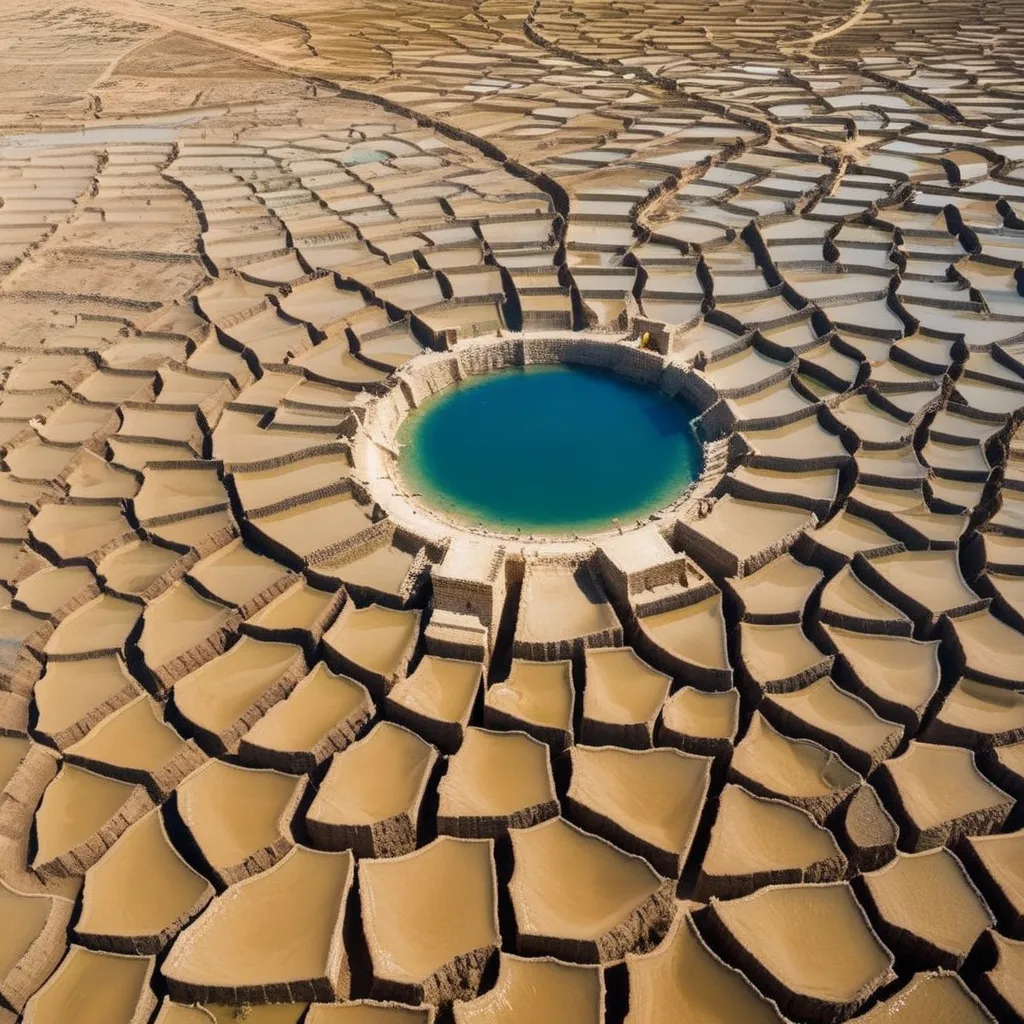The Global Challenge of Water Scarcity
Last summer, I found myself standing in my backyard, holding a garden hose in one hand and reminiscing about my childhood. Back then, playing with water from the hose on hot days was a cherished pastime. But as I watched the water flow, I couldn't ignore the nagging feeling that this precious resource was slipping through my fingers, quite literally.

Water scarcity is not a distant problem limited to arid regions; it's a global challenge that affects us all. In this article, we'll delve into the issue of water scarcity, its causes, consequences, and what we can do to address it.
Understanding Water Scarcity
What Is Water Scarcity?
Water scarcity occurs when there's not enough freshwater available to meet the various demands of people, industries, and ecosystems within a particular region. It's important to note that water scarcity is not solely about the physical availability of water; it also considers the quality and accessibility of the available water.
The Causes of Water Scarcity
Growing up, I often heard the phrase 'water is life.' But as an adult, I've come to realize that water is also a finite resource facing multiple challenges.
- Overextraction: Excessive withdrawal of groundwater for agriculture, industry, and domestic use can deplete aquifers faster than they can be naturally recharged.
- Climate Change: Altered precipitation patterns and increased evaporation due to rising temperatures can disrupt the availability of freshwater resources.
- Pollution: Pollution from industrial and agricultural runoff, as well as inadequate wastewater treatment, can contaminate water sources, making them unsafe for consumption.
- Population Growth: The global population continues to grow, leading to increased demand for water for drinking, sanitation, and food production.
- Inefficient Water Use: Inefficient water use in agriculture, industry, and households exacerbates water scarcity.
The Consequences of Water Scarcity
1. Impact on Health
I vividly remember a news story about a community in a distant country finally gaining access to clean drinking water. It struck me that clean water should be a fundamental human right, not a luxury.
Water scarcity can lead to waterborne diseases, inadequate sanitation, and a higher risk of malnutrition, particularly in vulnerable populations.
2. Environmental Degradation
Water scarcity can harm ecosystems, leading to reduced biodiversity and the disruption of aquatic habitats. It can also exacerbate the effects of climate change by reducing the capacity of ecosystems to provide essential services like carbon sequestration and flood control.
3. Social and Economic Impacts
I once met a farmer who lamented the uncertainty of his livelihood due to irregular rainfall patterns. It's a stark reminder that water scarcity has far-reaching economic consequences.
Water scarcity can lead to conflicts over water resources, particularly in regions where water is already scarce. It can also hinder economic development by limiting agricultural productivity and industrial growth.
Addressing Water Scarcity
1. Sustainable Water Management
Sustainable water management practices, such as efficient irrigation techniques and watershed management, can help preserve water resources.
2. Water Recycling and Treatment
During a trip to a wastewater treatment plant, I was astonished to learn about the intricate processes involved in turning wastewater into safe, reusable water.
Investing in advanced wastewater treatment and recycling technologies can alleviate water scarcity by providing a source of reclaimed water for various purposes.
3. Climate Resilience
Addressing climate change through mitigation and adaptation measures is crucial in mitigating the effects of water scarcity.
4. Education and Awareness
Teaching my children about the importance of water conservation has become a part of our daily routine. It's a small step, but every drop saved matters.
Educating communities about water conservation and the value of water is essential for fostering a culture of responsible water use.
Conclusion
As I turned off the garden hose that day, I made a promise to myself: I would do my part in conserving water, not just for my generation but for the generations to come.
Water scarcity is a complex and pressing issue, but it's not insurmountable. By understanding the causes, consequences, and potential solutions, we can work collectively to ensure that this vital resource remains available to all.
Remember, even small changes in your daily water use can make a significant difference in addressing the global challenge of water scarcity.

No comments:
Post a Comment